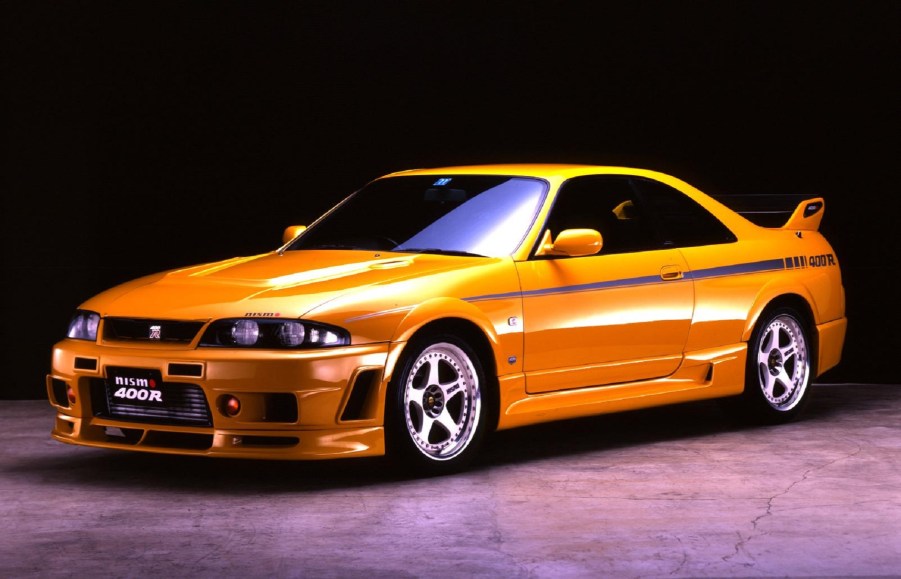
Now More States Are Banning Imported Cars That Were Legal
This keeps getting uglier. In July, we reported on Maine taking back registrations of certain imported vehicles that became legal under the 25-year rule. You can import cars after 25 years into the US that you couldn’t when new. Rhode Island did a similar about-face. Now Pennsylvania and New York have joined in on banning certain imported cars that were here legally. So what’s going on?
Importing Japanese vehicles that were not legal in the US when new, became legal to import under a new federal rule exempting Federal Motor Vehicle Safety Standards. But it had to be at least 25 years old. In the last few years, many have done this legally and successfully. These enthusiasts have followed the importing guidelines and ended up with registrations and brand new license plates.
How did states banning imported cars get started?

Everything was running smoothly until early this summer when both Maine and Rhode Island sought to take back registrations based on American Association of Motor Vehicle Administrators guidelines. The AAMVA does not have the authority to make or change laws. It is just a lobbying group made up of both law enforcement administrators and executives. Every state has a representative.
Its purpose is for the standardization of laws governing vehicles and their use. It makes recommendations, but again, can’t make or change laws. Both Maine and Rhode Island were the first two states to change the legality of importing Japanese “mini-trucks” into the US.
Maine says, according to Jalopnik, that vehicles not originally allowed into the country as an “off-road” vehicle meeting FMVSS rules cannot be driven legally in the state. Its definition of off-road is vague enough that it can apply to other Japanese vehicles like Nissan Skylines. But, at least Maine residents get an oblique explanation.
Some states don’t give reasons why they now ban certain imported cars

Rhode Island gives no reason. It has sent letters to certain JDM owners that include “unsafe” and “unfit” for its reasoning behind taking back registrations. When pressed by journalists and owners, the states always reference the AAMVA recommendations. In Rhode Island’s case, it specifically says that mini-trucks, microvans, and Kei cars are banned.
The AAMVA began to get vocal about imported mini-trucks after both Japanese and Chinese examples began to flood US markets early in the 21st century. Most states didn’t know what to do about registering them. So laws governing the import of these vehicles varied from state to state. A meeting was held in 2010 for states to begin standardizing how they would handle the situation. Many more meetings occurred in subsequent years.
Then the Insurance Institute for Highway Safety got involved. It suggested these vehicles are unsafe and shouldn’t be allowed in the US. The IIHS focused on those low-speed gardening trucks with a top speed of 25 mph. From there, the AAMVA published its Best Practice Regarding Registration and Titling of Mini-Trucks.
The AAMVA says the imported cars are Japan’s “cast-offs”

Among other claims, the document said these were Japan’s “cast-offs” and didn’t meet Japan’s safety and emissions standards. Of course, every country updates its safety and emissions standards from time to time. But that doesn’t result in banning anything old that doesn’t meet the current standards.
Then just this year, the AAMVA went further saying that “an off-road vehicle is any vehicle not designed and manufactured to meet FMVSS standards. They may also be referred to as off-highway vehicles.” Do you see the problem here? Now anything being imported can be considered an “off-road” vehicle. That means Honda Beats, Nissan boutique vehicles like the Pao, Be1, and S-Cargo; and also cars like the Renault Twingo.
The AAMVA is also recommending that to make the banning of formerly-legal imports legal for the states to enact, they should change their laws to conform. “Jurisdictions are encouraged to pursue statutory changes necessary to implement the best practices,” the organization says.
Yes, there are lawsuits

As you can imagine, lawsuits are flying around. They surely would not be taken on if legal firms didn’t think these taking back registrations were legal. But states have been blindly following the recommendations of the AAMVA for decades.
Right now, no states are taking questions. They see pursuing taking these vehicles off the road as a public benefit. And they see the AAMVA as a righteous body they can use to craft laws. This, in spite of the group suggesting states change their laws to fit its recommendations.
The cost to export one of these vehicles and the vehicles themselves is an expensive proposition. All vehicles brought into this country that follows the laws and rules governing importation and registration make them legal to drive on public roads. What is going on could eventually draw a pattern for older American vehicles, should the AAMVA start down that path.
The group has been empowered, though it has no power. An assumption of risk is how adults make decisions. It is assumed you know that your chances of being killed in a convertible increase because you don’t have a metal roof over you. Last we looked, convertibles are still legal in the US.



